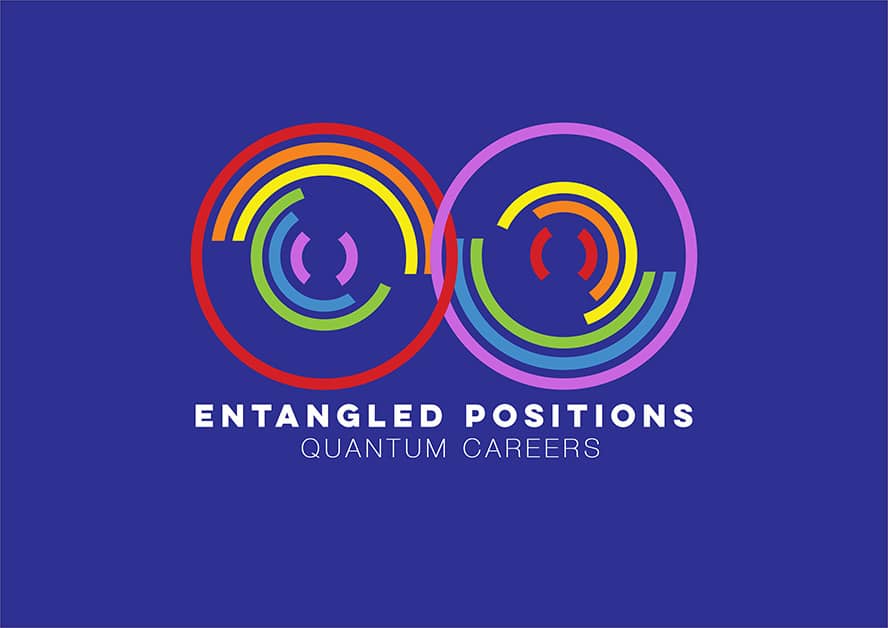Some Savvy Quantum Experts Weigh In
The declining economy, both in the U.S. and overseas, has raised questions for those focused on the world of quantum technology.
Is quantum tech immune to the broader economic decline? Or at least more resilient? Can quantum tech companies withstand a recession? A continued slide in the equity markets? Investor impatience? Continued supply chain woes?
If the sector is, indeed, immune, what factors are driving this? Are they sustainable? And if the sector is no different from other once-thriving tech companies suddenly facing a downturn, what should we expect from quantum startups in the months ahead?
All good questions! We turned to some savvy quantum tech experts to find some answers.
None of our questions elicited black-and-white answers, shades of gray were the common thread, but overall, the responses were encouraging.
“Given the relatively early stage of quantum hardware, few investors of quantum computing are anticipating an immediate return on their investment. I expect forward-looking organizations with reasonably durable budgets for exploratory technology to stay the course with projects already in flight, though there may be a more ‘wait and see’ stance throughout the rest of the year,” commented James Sanders, Research Analyst, Cloud & Managed Services Transformation, at 451 Research (S&P Global Market Intelligence).
Not a Death Blow
Doug Finke, managing editor of Quantum Computing Report, suggested a mixed optic: “The quantum tech sector will be impacted somewhat, but I wouldn’t characterize it as a ‘death blow.’ There are signs that VC investors are becoming cautious and may not be as ready as before to make investments in quantum computing.” Finke and several other experts noted that some quantum companies that were wishing to go public via a SPAC have delayed their plans.
Brian Lenahan, founder/chair of Quantum Strategy Institute and CEO of Aquitaine Innovation Advisors, drew a line between prepared and unprepared companies. “A current abundance of funding in the sector may delay a recessionary impact in the quantum sector. However, companies without built-in resilience from experienced advisors, proximity to clients, near-term cash flows and a long-term view will be challenged to survive a prolonged downturn (ala 2008-2009), notwithstanding the current glow of quantum investment.”
André König, CEO of Interference Advisors, had optimistic words, diluted with caution. “We are entering a historic downturn. And while quantum tech won’t be spared, I am confident that it will remain relatively sheltered. I do not see a significant correction impending due to the current macro climate. The driving factor in quantum tech is the tension between maturity curve and market forces, more so than micro- or macro-economic trends,” König said.
A Different Yardstick
“While every sector and venture must adhere to good business hygiene, quantum tech is isolated from the environment by its very own, spooky nature. Quantum tech is still a very young industry. There is as much science as engineering that needs to be done for users to derive any real value out of this paradigm-shifting technology. And while market forces – driven by investors and stakeholders in quantum tech – drive hype and expectations, reality is that we are too early to be measured by that yardstick,” König added.
He cautioned further, “The combination of these factors should not make anyone feel safe, in the slightest. Cash will get expensive, resources scarce, capital will slow, and projects will be scrutinized more intensely. Execution, in this context, is key. . . I see the next two years as the opportunity to truly prove the potential of the technology and position for true scaling.”
Lenahan has a similar impression, “Quantum immunity should last in the short term, yet the technology represents a small portion of today’s IT budget with substantial, scaled commercialization years away – suggesting challenging times ahead.”
Russ Fein, Managing Director of Corporate Fuel Partners, has real concerns about the quantum sector, but not because of the general economy. “I’ve recently been worrying that the quantum financing party may be ending soon (or at lease sputtering a bit), but that has nothing to do with the broader downturn. Hardware players have raised huge sums in aggregate and will begin to need to go back to the markets soon for B-rounds. Without very clear achievement of milestones, it will be difficult to raise more capital and I expect there to be an increasing number of down-rounds, which will add drag to the overall QC investment environment. This is now exacerbated by the broader market decline.”
An upbeat view comes from Nardo Manaloto, Managing Partner, Qubit Ventures, who commented, “Since the quantum tech sector is still in its nascent stages, the impact is minimal for those startups in early stages. There is built-in resilience due to the amount of time it will take to realize, apply and adopt this technology. The impact is primarily on the larger VC firms investing in the quantum computing companies that have gone public and have pressure to show traction and require larger investment amounts.”
Watching Layoff Trends
Connor Teague, president of Quantum Futures, closely watches quantum employment trends in his position as a quantum-specific recruiter. “I can only see it slowing down if people are being laid off and the reason people will be laid off will be because of investments slowing down. If companies continue to hit their targets, then I don’t see a problem. However, companies are over-promising on their roadmap to secure funding. It’s incredibly difficult to reach these milestones, which strains how the rest of the world views quantum computing businesses. They think ‘it’s not working,’” Teague said.
Teague adds that quantum-specific VCs do understand it’s a long-term investment and so they may give their portfolio “extra backing to weather this storm.”
Christopher Bishop, Chief Reinvention Officer at Improvising Careers, offers further confidence. “With my economic historian hat on, we need to keep in mind that all technologies were once ‘new’ – quantum is no different. Interest always waxes and wanes. This has been true for breakthroughs from the Victorian internet (telegraph) to the personal computer.
“But the potential impact of quantum information science is so broad-based and wide-ranging – from both the benefits it can deliver as well as the risks to areas like data security – that interest will not wane any time soon. The application of quantum information science will change how we live and work – even though it may be 5, 10, 20 years out. And as a result, it will generate continued focus and investment,” Bishop noted.
Taking the conversation further, the experts offered reasons why, or why not, the quantum tech sector differs from broader tech.
Fein points to a longer economic cycle in quantum and more patience from players in the industry. He surmises, “Given the power and potential of quantum computers, there is a bit of a protective aura around the space vis-à-vis broader market cycles.”
Sanders points out that in comparison with other enterprise technology and mass-market consumer electronics, supply chain issues have less impact on quantum tech companies. “There is no mass manufacturing in quantum computing or networking. Devices in use now are generally assembled by PhDs, and the consumption of components (industrial control, laser assembly, etc.) are not in particularly high volume.”
Also attributing to the quantum tech differential is the level of attention given to these companies. Finke commented, “The other difference is that quantum tech has more hype.”
Global Government Funding
Several experts quickly pointed to the almost ubiquitous global government funding flowing to quantum startups.
Finke said, “Quantum tech has received substantial government funding, and this funding will continue or even increase. There are certain concerns about national security as well as national economic health that will motivate governments worldwide to maintain this funding. In particular, the European countries and China are funding quantum tech at an even higher rate than the U.S. because they don’t want to see the U.S. dominate quantum tech in the same way it did with classical computing tech.”
König concurred, “Let’s not forget that quantum tech is a national priority of the highest order for the major markets in North America, Europe, parts of Asia, Israel and other regions.
So, what do the experts see in their crystal balls if the quantum tech sector softens along with the rest of the technology realm?
Pockets of Pain
Fein, while not attributing the slowdown to the broader economic decline, still anticipates “pockets of pain as individual companies miss milestones and/or run out of funds.”
Sanders has thoughts about the impact of the currently small quantum talent pool on the less common hardware approaches. “The truism of ‘if you want to go far, go together” may apply to quantum, particularly for the multiple early approaches around superconducting and ion qubits, versus more boutique approaches such as electron-on-helium, where only one startup with extremely specialized knowledge is pursuing a modality.”
Lenahan offered additional thoughts: “Taking reference from the various eras of artificial intelligence waves, quantum tech companies not producing commercial results should expect a decline in theoretical quantum activities. However, an emphasis on in-market use cases should generate continued interest from investors and consumers. Sector wide, we should anticipate reduced conference overlap (participants being more selective) and a slow shift from talent undersupply to a more balanced talent gap.”
Full-Stack Winners
The experts anticipate more mergers and consolidation within the industry, particularly if there is a softening of the sector. König commented, “The quantum tech market is poised for consolidation, full stack providers will emerge as winners and capital will flow to those projects promising the best approach to this yet unsolved puzzle.”
A few other predictions emerged from the expert panel.
Fein said, “I believe the general philosophy will remain ‘full steam ahead.’ That said, companies will begin to worry that their next round may be more difficult to close, and so may do things to extend their runways. Companies like PsiQuantum, which raised enough to weather many years, will keep their foot on the gas. Those with less than 12-18 months of runway may begin to be more guarded in their spend. I doubt we’ll see wholesale layoffs, but we may see a slight slowdown in hiring and investment so that runways can be extended.”
Gradual Changes
Finke suggested, “I think changes will be seen gradually. In fact, some may have already started as seen in the stock prices of IonQ and Rigetti, and perhaps some of the mergers within the past few months. There will likely be a shake-out in the industry.” This follows the pattern of many industries including “railroads in the 1840s, automobiles in the early 20th century, radio in the 1920s, television in the 1940s, transistor electronics in the 1950s, computer time-sharing in the 1960s, and home computers and biotechnology in the 1980s (from Wikipedia).”
“However, a few stronger players will survive and even thrive. Netflix was founded in 1997 and Google in 1998, a few years before the internet tech bubble started bursting in 2000. So, in the end, winnowing the quantum tech companies may prove beneficial to the industry in the long term because weaker companies will go away and stronger companies will become even stronger as major players,” Finke added.
König summarized, “I am a huge proponent of commercialization and solution selling, and that is my goal for quantum tech, but the point we are at in the current development is still very much dominated by scientific development and even research. Thus, while there undoubtedly will be financial pressure on any vendor and startup, I do not expect to see a fall out due to the current externalities.”
(Editor’s Note: This blog was originally published in the Quantum Computing Report)










